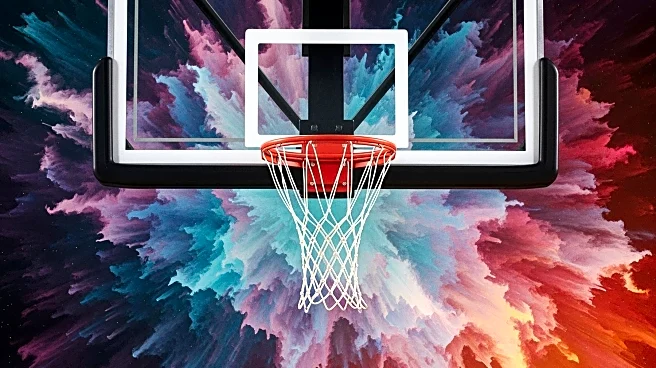What's Happening?
Sonia Raman is expected to be appointed as the head coach of the Seattle Storm, according to reports. Raman, who previously served as an assistant coach for the New York Liberty, will be the first person
of Indian descent to hold a head coaching position in the WNBA. Her appointment follows the non-renewal of former head coach Noelle Quinn's contract after the Storm's consecutive first-round playoff exits. Under Quinn, the team had a record of 97-89 over five seasons, reaching the postseason four times but failing to secure a championship since 2020. The Storm's roster includes notable free agents such as Skylar Diggins and Nneka Ogwumike, while Dominique Malonga remains under contract.
Why It's Important?
Raman's appointment is a significant milestone for diversity and representation in professional sports, particularly within the WNBA. Her leadership could bring new strategies and perspectives to the Seattle Storm, potentially revitalizing the team's performance. The Storm's decision to hire Raman reflects a broader trend in sports towards inclusivity and breaking traditional barriers. This move could inspire other teams to consider diverse candidates for leadership roles, impacting the league's cultural and operational dynamics.
What's Next?
As Raman takes on her new role, she will face the challenge of rebuilding the Storm's roster and strategy to improve their playoff performance. The team's management will likely focus on securing key players and enhancing team cohesion. Raman's coaching style and decisions will be closely monitored by fans and analysts, influencing the Storm's future direction. Additionally, other WNBA teams are making coaching changes, with the Portland Fire and Toronto Tempo also appointing new head coaches.
Beyond the Headlines
Raman's historic appointment underscores the importance of diversity in leadership positions within sports organizations. Her success could pave the way for more inclusive hiring practices across the league, encouraging teams to embrace varied perspectives and experiences. This shift towards diversity not only enriches the league's cultural fabric but also enhances its appeal to a broader audience, potentially driving growth and innovation in women's sports.










